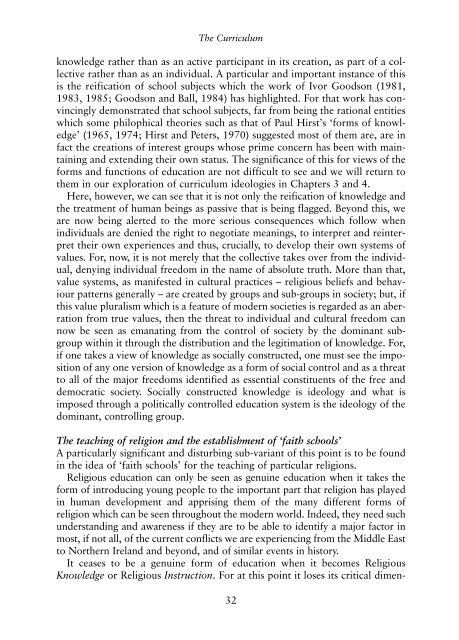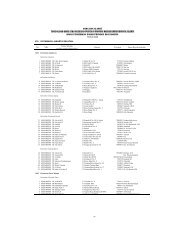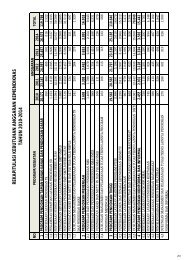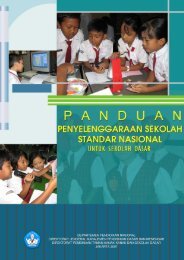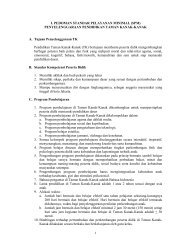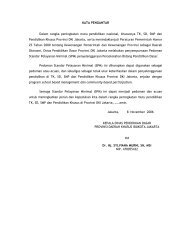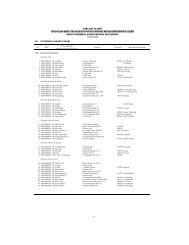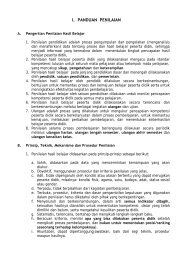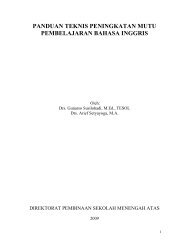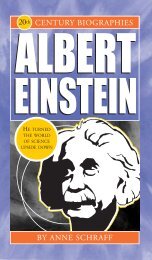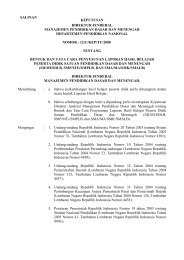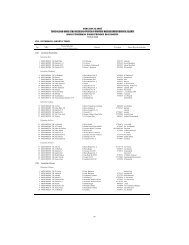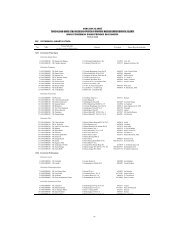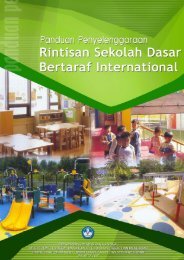The Curriculum - WordPress.com
The Curriculum - WordPress.com
The Curriculum - WordPress.com
Create successful ePaper yourself
Turn your PDF publications into a flip-book with our unique Google optimized e-Paper software.
<strong>The</strong> <strong>Curriculum</strong>knowledge rather than as an active participant in its creation, as part of a collectiverather than as an individual. A particular and important instance of thisis the reification of school subjects which the work of Ivor Goodson (1981,1983, 1985; Goodson and Ball, 1984) has highlighted. For that work has convincinglydemonstrated that school subjects, far from being the rational entitieswhich some philophical theories such as that of Paul Hirst’s ‘forms of knowledge’(1965, 1974; Hirst and Peters, 1970) suggested most of them are, are infact the creations of interest groups whose prime concern has been with maintainingand extending their own status. <strong>The</strong> significance of this for views of theforms and functions of education are not difficult to see and we will return tothem in our exploration of curriculum ideologies in Chapters 3 and 4.Here, however, we can see that it is not only the reification of knowledge andthe treatment of human beings as passive that is being flagged. Beyond this, weare now being alerted to the more serious consequences which follow whenindividuals are denied the right to negotiate meanings, to interpret and reinterprettheir own experiences and thus, crucially, to develop their own systems ofvalues. For, now, it is not merely that the collective takes over from the individual,denying individual freedom in the name of absolute truth. More than that,value systems, as manifested in cultural practices – religious beliefs and behaviourpatterns generally – are created by groups and sub-groups in society; but, ifthis value pluralism which is a feature of modern societies is regarded as an aberrationfrom true values, then the threat to individual and cultural freedom cannow be seen as emanating from the control of society by the dominant subgroupwithin it through the distribution and the legitimation of knowledge. For,if one takes a view of knowledge as socially constructed, one must see the impositionof any one version of knowledge as a form of social control and as a threatto all of the major freedoms identified as essential constituents of the free anddemocratic society. Socially constructed knowledge is ideology and what isimposed through a politically controlled education system is the ideology of thedominant, controlling group.<strong>The</strong> teaching of religion and the establishment of ‘faith schools’A particularly significant and disturbing sub-variant of this point is to be foundin the idea of ‘faith schools’ for the teaching of particular religions.Religious education can only be seen as genuine education when it takes theform of introducing young people to the important part that religion has playedin human development and apprising them of the many different forms ofreligion which can be seen throughout the modern world. Indeed, they need suchunderstanding and awareness if they are to be able to identify a major factor inmost, if not all, of the current conflicts we are experiencing from the Middle Eastto Northern Ireland and beyond, and of similar events in history.It ceases to be a genuine form of education when it be<strong>com</strong>es ReligiousKnowledge or Religious Instruction. For at this point it loses its critical dimen-32


